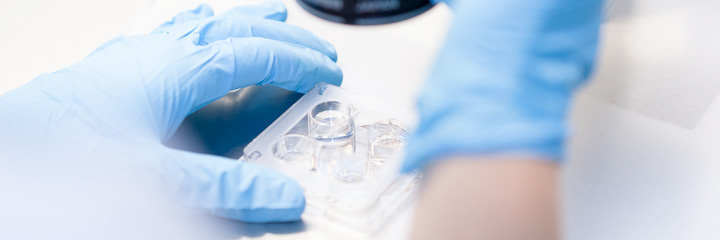
This technique is recommended when the sterility factor is caused by problems derived from the patient's low quantity and/or poor quality of eggs. This can be caused by different reasons:
Donors are healthy women, between 18 and 35 years old, who want to help other women become mothers. The donor selection criteria are governed by Law 14/2006 on Assisted Human Reproduction Techniques, and are as follows:
In the process of selecting and assigning a compatible donor to the recipient, the following are taken into account:
In the IVF process, the eggs obtained from the donor are inseminated with the semen sample of the recipient patient's partner, in order to cultivate the embryos, which will be transferred to the recipient's uterus.
Prior to this transfer, the patient receives mild hormonal treatment to prepare the endometrium and facilitate embryo implantation.
In case the recipient is not ready for embryo transfer, the embryos are vitrified for future transfers.
In Spain, the Law states that donation is anonymous, altruistic and voluntary.